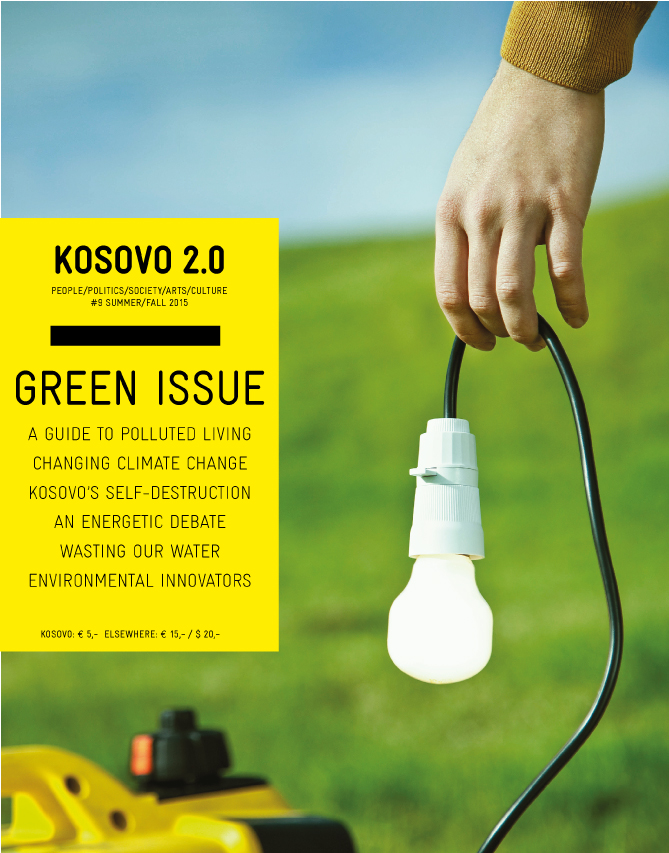
#9 GREEN
“Green” confronts the grave environmental crisis facing Kosovo. This issue addresses air and water pollution, waste overproduction, deforestation and contaminated rivers. It also explores the health risks communities face from industrial activities and power plants. "Green" combines investigative journalism with an analysis of waste management, legal and social obstacles, and civic and policy solutions to argue that environmental protection is essential for achieving a healthier future.
|05.08.2015
|
As global and local conversations happen all over the world, our Green issue offers an entryway to some of the gravest environmental problems and challenges facing Kosovo.

Besa Luci
Besa Luci is K2.0’s editor-in-chief and co-founder. Besa has a master’s degree in journalism/magazine writing from the University of Missouri’s School of Journalism in Columbia, U.S..
This story was originally written in English.